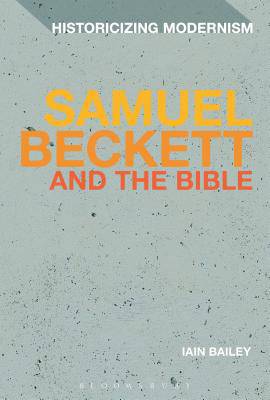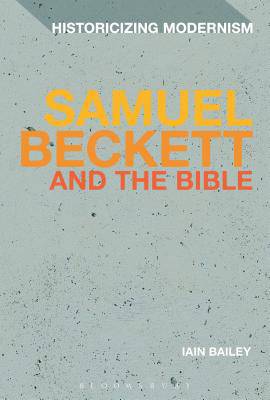
Je cadeautjes zeker op tijd in huis hebben voor de feestdagen? Kom langs in onze winkels en vind het perfecte geschenk!
- Afhalen na 1 uur in een winkel met voorraad
- Gratis thuislevering in België vanaf € 30
- Ruim aanbod met 7 miljoen producten
Je cadeautjes zeker op tijd in huis hebben voor de feestdagen? Kom langs in onze winkels en vind het perfecte geschenk!
- Afhalen na 1 uur in een winkel met voorraad
- Gratis thuislevering in België vanaf € 30
- Ruim aanbod met 7 miljoen producten
Zoeken
€ 88,45
+ 176 punten
Uitvoering
Omschrijving
From Waiting for Godot to such later novels as Ill Seen, Ill Said, the work of Samuel Beckett is filled with Biblical references. Samuel Beckett and the Bible re-appraises the relationships between Beckett's work and the Bible, exploring both as objects of history, matter and memory. Iain Bailey ranges across the Beckett oeuvre to examine how the Bible has come to be regarded as a book of unique significance in his work, offering innovative readings of intertextuality and influence in both published and archival writings. Beckett's Bibles, the book demonstrates, are thoroughly material, as significant for their involvement in histories of education, the family, common knowledge and canon-formation as for what they have to say about God, hope and salvation. The book explores Beckett's uneasy forms of memory, materiality, language and history to assess how far and in what ways the Bible matters in his work, and why Beckett's voice 'harps, but no worse than Holy Writ.'
Specificaties
Betrokkenen
- Auteur(s):
- Uitgeverij:
Inhoud
- Aantal bladzijden:
- 208
- Taal:
- Engels
- Reeks:
Eigenschappen
- Productcode (EAN):
- 9781474250252
- Verschijningsdatum:
- 30/07/2015
- Uitvoering:
- Paperback
- Formaat:
- Trade paperback (VS)
- Afmetingen:
- 156 mm x 234 mm
- Gewicht:
- 303 g

Alleen bij Standaard Boekhandel
+ 176 punten op je klantenkaart van Standaard Boekhandel
Beoordelingen
We publiceren alleen reviews die voldoen aan de voorwaarden voor reviews. Bekijk onze voorwaarden voor reviews.









